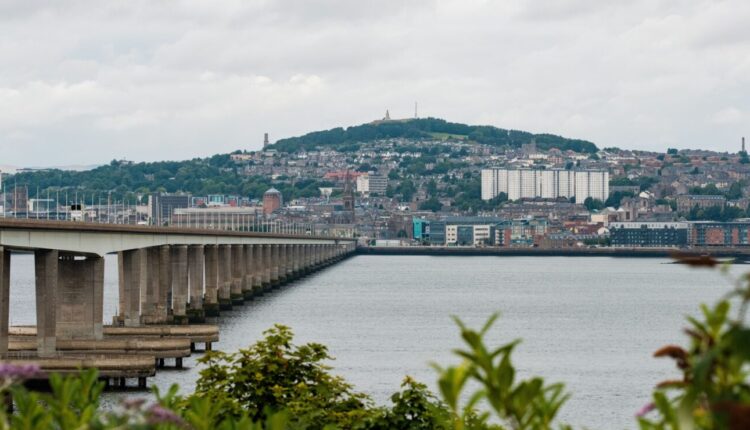Dundee’s troubles and the state of the sector.

Despite the damning findings of the Gillies report into the University of Dundee, David Duncan argues that the wider problems with funding in Scotland must be part of the debate.
“Dundee University’s reputation soars,” proclaimed the front page of the Courier in 2004. Taking advantage of a rise in the league tables, the then-university secretary emphasised the institution’s commitment to excellent learning and teaching, outstanding research, and community involvement.
Fast forward. The university’s desperate financial situation, rapid departures of senior staff, emergency government funding, threats of large-scale job losses, and very painful sessions before the Scottish Parliament education committee have all contributed to less positive press coverage over the last 21 years.
A hard-hitting report by former Glasgow Caledonian principal Pamela Gillies put the blame on “poor financial judgement, inadequate management and reporting, poor monitoring of the financial sustainability KPI, a lack of agility in responding to a fall in income by the University leadership and weak governance in relation to financial accountability by the University Court,” compounded by the “top-down, hierarchical and reportedly over-confident style of leadership and man”
The 64-page document is scathing in its criticism of senior officers and university governors, a viewpoint shared by the select committee, where MSPs expressed their displeasure in the strongest terms possible.
Later events, such as the departure of the interim finance director after only one week on the job, have only exacerbated the pain.
The financial collapse at Dundee raises concerns for the rest of Scotland’s higher education sector and the United Kingdom as a whole.
Are the same flaws present in other institutions? Is there a crisis in higher education? How should governments and the sector respond?
Governance and management
Before I go any further, I must declare a personal interest: I was the university secretary quoted in the 2004 press article, and I have had a deep affection for the University of Dundee since leaving in 2008.
I also chaired the group that produced the most recent revision of the Scottish Code for Good Higher Education Governance in 2023, a document that Professor Gillies believes is fit for purpose as long as institutions adhere to it strictly.
However, implementing the code of governance, as excellent as it is, will not suffice; we must all learn from the Dundee experience and ensure that our own universities do not suffer a similar fate.
To that end, we should have an open discussion about what happened and examine it from all perspectives.
So far, the criticism has concentrated on the shortcomings of Dundee’s senior management and governors. In response, they admitted that they should have identified the financial problems earlier and avoided taking action.
As one officer told the committee, they could have dealt with them “under their own steam”. Senior administrators and the university court should have been aware of the deteriorating financial situation in the second half of the academic year 2023-24.
Student recruitment fell in September 2023 and again in January 2024; meanwhile the international market was contracting and the UK government looked set to implement unhelpful policy developments as part of its anti-immigrant agenda.
At that stage, the university’s executive board should have been keeping an eagle eye on the monthly management accounts, freezing all but essential staff recruitment and paring back expenditure. The failure even to recognise there was a financial deficit until October 2024 was a critical lapse.
Reflecting on this, all universities will now examine their systems, processes, and culture to ensure that they do not fall into the same pitfalls.
The sense of urgency will be especially acute in institutions that are running deficits, a situation that has now affected many HEIs that were previously thought to be immune to such challenges.
In Scotland, the cabinet secretary for education has urged the sector to address the issue of “unsustainable jobs,” seemingly approving further staffing cuts.
University courts and councils will evaluate governance arrangements and investigate ways to improve financial oversight; some will also examine how they interact with their vice chancellors and senior leadership.
In doing so, they should ensure that senior officers and trade union representatives have the ability to question heads of institutions and bring any concerns to the governing body.
Model issues
All of this is reasonable, but the debate thus far has largely ignored some fundamental issues.
Most importantly, the sector requires a new financial model; it cannot continue to rely on international student fees.
In England, the UK government has allowed the home undergraduate fees cap to rise in line with inflation, but Holyrood has not made a similar move, and is unlikely to do so before the 2026 Scottish election.
The lack of funding will result in additional retrenchments and cost-cutting in estates and IT budgets; unpalatable options such as delaying national pay increases or cancelling academic promotions rounds may also be considered.
Against this backdrop, Scottish politicians must step up; we must treat university funding as a national issue that requires a long-term solution, preferably identified through a review supported by all parties.
Returning to Dundee, there is a reason why that university was hit so hard that goes beyond mistakes made by senior management.
For at least 30 years, Dundee has been a hub of life sciences research, with a particular emphasis on cancer and tropical diseases.
A look at the 2021 REF results for biological sciences confirms this: Dundee is ranked second behind the Institute of Cancer Research, ahead of Oxford, Cambridge, Imperial, and many other universities with significantly more resources.
This is an incredible story about a relatively small, provincial university competing with and defeating some of the world’s greatest and best-funded institutions; in the process, Dundee’s researchers have benefited humanity not only in this country but also throughout the global south.
Sir Alfred Cuschieri, Sir David Lane, Sir Philip Cohen, Cheryll Tickle CBE, Sir Pete Downes, and Sir Mike Ferguson are among the many prominent biomedical scientists whose careers have flourished at Dundee.
However, this accomplishment comes at a cost; even 20 years ago, Dundee struggled to generate surpluses that would protect the institution from a rainy day.
As everyone knows, research funding does not cover the cost of the work it is supposed to support; universities must cross-subsidise scientific endeavours with endowments, donations, and international student fees.
The challenge is exacerbated when most of your funding comes from charities, which have lower overhead than government research councils.
This put Dundee in a particularly vulnerable position when the international student recruitment market began to contract in 2023-24, a problem not shared by other universities with a fraction of Dundee’s research activity.
Given what has occurred, it is appropriate that universities conduct self-audits to ensure that their own houses are in order.
The Scottish government and funding council should also ensure that Scotland’s higher education institutions are effectively led and managed. However, the more pressing issue of how to fund the sector must be addressed as soon as possible.
- As part of this, we should acknowledge that world-class research, such as that fostered in Dundee, is valuable; we should all support the Tayside recovery effort.
For my part, I am confident that the university will continue to be a research powerhouse and a centre of excellence in learning and teaching for many decades. With the right support, Dundee’s reputation will soon rise again.
Read more on Straightwinfortoday.com


Comments are closed, but trackbacks and pingbacks are open.